Each year, Sirens chair Amy Tenbrink posts monthly reviews of new-to-her books from the annual Sirens reading list. You can find all of her Sirens Book Club reviews at the Sirens Goodreads Group. We invite you to read along and discuss!
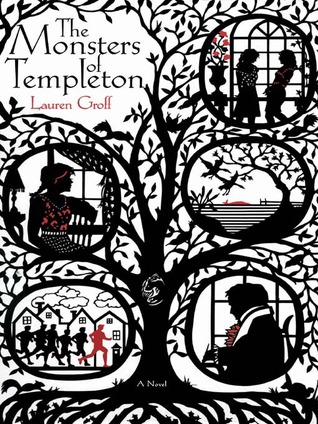
“The day I returned to Templeton steeped in disgrace, the fifty-foot corpse of a monster surfaced in Lake Glimmerglass.”
Thus begins The Monsters of Templeton.
I read somewhere north of 150 books a year—and when you do that, you have the luxury of tackling books for any number of reasons. I don’t have to jealously guard 12 or even 50 available slots a year, cautiously filling them only with books that come highly recommended. I can read for any reason under the sun. For example, I’m notoriously a sucker for well-designed covers, sometimes for good and sometimes for spectacular ill.
This might, however, be the first time that I chose a book because of its first line.
But look at it. Just look at it.
Even putting aside my preternatural love of monster narratives—which we absolutely should not because my love is legion and we’re going to discuss this monster in particular—that’s a magnificent first line. There’s a gravity to it, a weight, around not just a return to Templeton, but a return steeped (steeped!) in disgrace. But there’s an absurdity as well, as you read on to the dead monster surfacing on the lake. Oh, the questions! Who is the protagonist? Is Templeton formerly home? What is this disgrace? How bad was it? What is this monster? Do you have a lot of monsters in Lake Glimmerglass? Are there monsters everywhere?
I had to know.
And that’s what hooks a reader, right? That need to know what happens next.
Well, it worked.
The Monsters of Templeton, by Lauren Groff (yes, that Lauren Groff), is one of my favorite fantasy literature subgenres: the sort of adult fiction that is so literary and so real that the marketing team can readily sideline the fantasy elements, making it all-too-easy for booksellers to shelve it with the general market fiction. (Annoying!) Think Jesmyn Ward or Carmen Maria Machado or Violet Kupersmith, all of whom write fantasy works, but none of whose works live in the fantasy section of your local Barnes and Noble. (Someday, I’ll write an essay that starts with those three and then happily proceeds to Erin Morgenstern, then Helen Oyeyemi, then Cassandra Khaw, at which point we are well and truly down my very favorite rabbit hole.) The Monsters of Templeton lives somewhere in this procession between Ward and Machado: a number of ghosts, some magical realism-style conflagrations, and the aforementioned monster—but we’re wholly and resolutely in a thinly-veiled Cooperstown.
Willie Upton, an archeological doctoral candidate, magical only in the very slightest of ways, opens the book by returning to her hometown: Templeton, New York. The town is important, not only as a predicate for the plot that follows, but also as a foil for the larger, perhaps grander, sometimes more disappointing world outside. The book can suffocate: After Willie’s arrival, her story arc happens entirely in the town of her birth; only rarely does the outside world intrude (the occasional phone call, a single postcard, a number of scientists looking to examine the monstrous corpse). Those intrusions periodically remind Willie—and the reader—perhaps unwantedly, of Willie’s scholarship, her ambition, and her success navigating that outside world.
Willie’s reason for returning home—and indeed, her return home itself—is fraught. She’s had a (perhaps) ill-advised affair with her married professor, found herself pregnant, and fled her summer work in Alaska to return to the bosom of not only her single mother, but the hometown she hasn’t seen in years. Willie’s flight from Templeton was, in her mind, a necessity; her homecoming, even more so. Never underestimate the emotional trauma of returning to not only your family, but your tiny hometown, “steeped in disgrace.” You can never go home again, I suppose, until you think you have nowhere else to go.
Vi, Willie’s mother, is drawn unsympathetically in Willie’s first-person narrative: a hippie-turned-Baptist, a professional caregiver, a descendant of town founder Malcolm Templeton, a woman who (smugly) knows her daughter better than Willie knows herself. Upon Willie’s arrival home, Vi (cleverly) gives her academic daughter a research task: Discover who her long-secret father is. Vi tells her only that he’s a resident of Templeton—and also a descendent of the revered Malcolm Templeton. Willie the archeologist gets to work and uncovering her father’s identity becomes both mysterious plot arc and book structure: sections alternate between historical depictions of Willie’s ancestors and her modern-day discoveries of links between those same ancestors. It’s a clever conceit, but one that causes the book to lose steam about two-thirds of the way through; at that point, the reader yearns for a hastened pace, but the book stoically maintains its structure.
Willie, Vi and the rest of Templeton are written with a lot of sensitivity. Anyone from a small town will startle at Groff’s insightful depiction of both the unchanging sameness and the roiling, gossip-worthy drama. That same group of middle-aged guys runs around Templeton every morning, but the more Willie uncovers in her quest for her father’s identity, the more the reader learns about the scandals of the town’s past. That sameness and that long-buried gossip birth both security and contempt in Willie, but also provide an unexpected accelerant for a story of monsters premised on, of all things, familiarity. Harken back to that first sentence: Willie has gone home, but equally important, a monster has died.
For those of you looking for a “here be monsters” adventure, this is not your book. Instead, that dead monster is a ready metaphor for every small town and for Willie’s story in particular: those churning scandals—an affair, a death, a fire—made manifest and, not coincidentally, surfacing at last. Not an inapt parallel, once you stop to consider, and one that Groff mines to raw, honest effect. You can go home again, in the end, but heaven knows what you’ll find.
Amy
Amy Tenbrink spends her days handling strategic and intellectual property transactions as an executive vice president for a major media company. Her nights and weekends over the last twenty-five years have involved managing a wide variety of events, including theatrical productions, marching band shows, sporting events, and interdisciplinary conferences. Most recently, she has organized three Harry Potter conferences (The Witching Hour, in Salem, Massachusetts; Phoenix Rising, in the French Quarter of New Orleans; and Terminus, in downtown Chicago) and eight years of Sirens. Her experience includes all aspects of event planning, from logistics and marketing to legal consulting and budget management, and she holds degrees with honors from both the University of Southern California’s Thornton School of Music and the Georgetown University Law Center. She likes nothing so much as monster girls, Weasleys, and a well-planned revolution.


































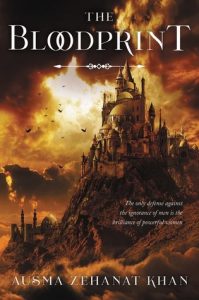
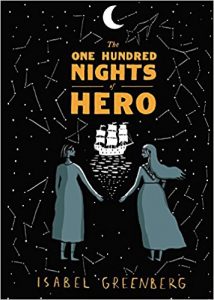
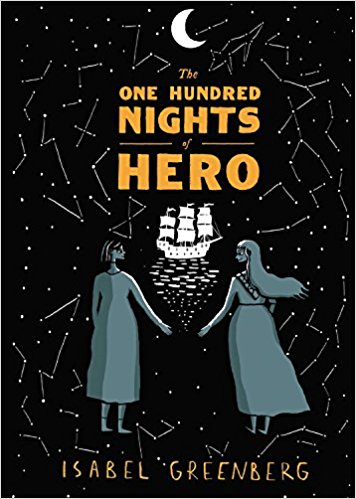
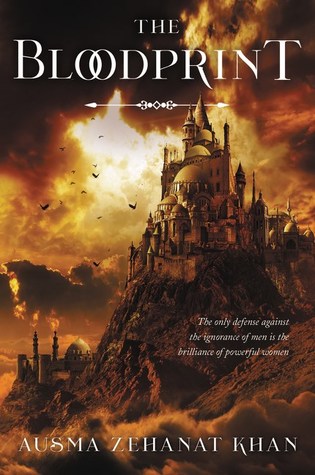






































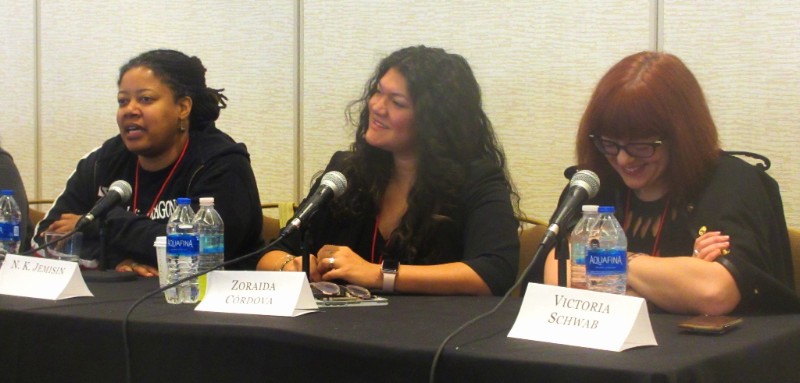
































Connect with the Sirens community
Sign up for the Sirens newsletter